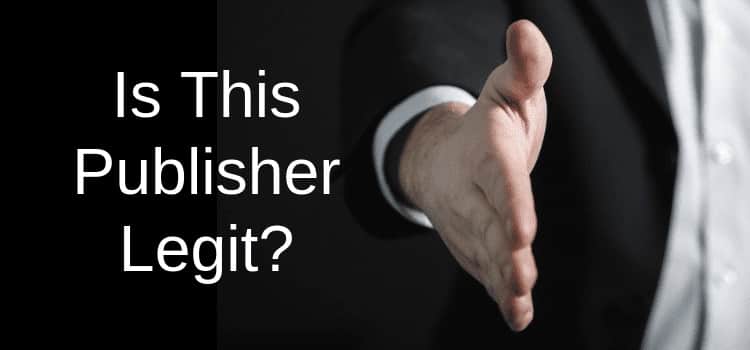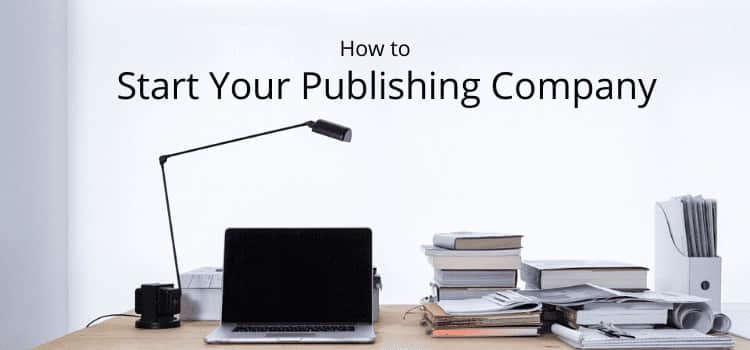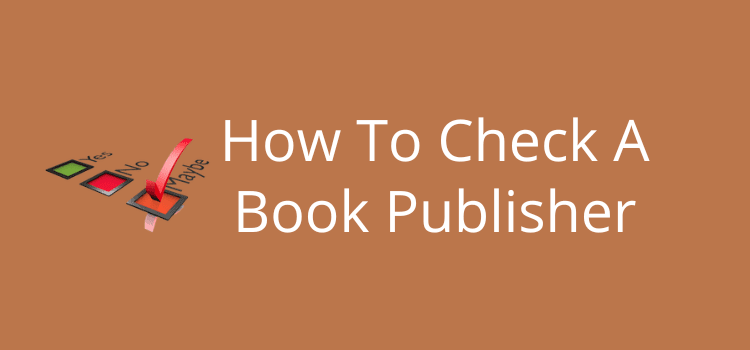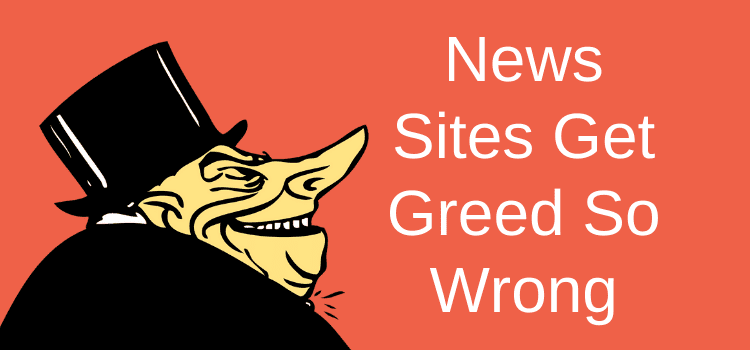
One of the most common questions I receive from readers via contact messages or comments is, “Is X, Y, or Z publisher legitimate?”
As a new author, you want to deal with honest and reliable publishing companies when it comes time to publish your book.
In today’s online world, new authors can publish in many different ways, which can become confusing.
How can you decide what a publishing company is offering you is fair and reasonable? The best way is to check the reputation of a book publisher before you rush into a decision.
Check for obvious red flags
You should be very careful if you receive an email with an unsolicited offer from a publishing company or service.
Your first question should be, how did this publisher get my email address? The second question is whether this publisher looks legitimate. In most cases, unsolicited offers are a danger signal.
It is extremely rare for reputable publishers or a literary agent representing a traditional publishing house to contact an author with an unsolicited publishing offer.
Unless, of course, the author has celebrity status.
A new author’s only route to getting a traditional publishing contract is to query literary agents.
You need to find agents that are accepting submissions. Always read the submission guidelines carefully; if your luck is in, you might find a reputable agent to represent you.
Nowadays, the most common route to get a book published is to self-publish with Amazon Kindle Direct Publishing, Smashwords, or Draft2Digital.
The last option is to use a vanity publisher.
If you are considering this last route, you should proceed with caution.
When readers ask about a specific publisher, they almost always refer to a vanity press company or a hybrid publisher.
What is legitimate, and what is a publishing scam?
There are a lot of vanity press publishers.
Most of them conduct their business on a perfectly legal basis.
However, this is not to say that their business models are advantageous or fair to an author.
Writer beware!
The problem that arises about the legitimacy of a publisher is one of expectation about the publishing process.
The standard process in book publishing is that money flows from the publisher to the author.
With vanity publishing, the money flows from the author to the publisher.
In other words, the author pays the publisher for a publishing package and production costs for publishing a book.
However, the question of whether a publisher is legitimate or not is almost always about who has the responsibility to sell your book.
New authors often overlook this critical point because they are excited about publishing their first book.
After parting with thousands of dollars, it is too late to discover that your publisher has no responsibility under your contract to sell your book.
So what do you have for the few thousand dollars you spent? Ten free author copies of your new book and zero book sales?
Recommended reading: Publishing Companies You Can Trust
What is legal?
If you receive an unsolicited email offer from a publisher you have never heard of offering you a free guide and a fantastic opportunity to publish your book, it is often a scam or at least a bit dubious.
Some try to tempt you with a free manuscript appraisal or a free publishing manual or ebook. Be extra wary of those who want to charge you a reading fee.
All these approaches aim to get your contact details, particularly your address and phone number.
Then, you can expect to be contacted by a high-pressure salesperson who will promise you the world but avoid talking to you about the price.
Only much later will you discover how much it will cost you.
It is essential to understand that door-to-door selling is not illegal.
Nor is annoying telemarketing and persistent phone calls from salespeople trying to convince you to part with your money.
But are these methods legitimate in today’s publishing industry? It depends on your point of view.
How to make your decision about a publishing company
Your decision-making process should start with deciding if the offer you receive is from a vanity publisher.
Understanding that vanity publishing and self-publishing are not the same is a good starting point.
Many vanity publishers call themselves self-publishers and use the word as a way to confuse you.
Self-publishing is about the author doing everything, so it is easy to define. You don’t need a publisher to do it.
Publishing is a big decision, so pay close attention to what the publisher promises to do.
Don’t rush into any agreement; always tell them you want to spend more time considering any proposal.
The most important decisions will be about who is responsible for marketing, promoting, and selling your book.
If the only promise is to list your book on the publisher’s website and social media, that is not marketing, promoting, and selling your book.
Most vanity publishers attract little website traffic, so no one will see your book on their site and buy it.
Without viable marketing from your publisher, setting up your book marketing and promotion will take a very long time.
It will also cost you much more money than what you paid the publisher.
What will you get for the price?
If you are concerned that you lack the technical ability to self-publish and would prefer a publisher to do all the work for you, be careful and weigh all the pros and cons.
But know that you might end up paying a hefty price for something a friend might be able to help you do.
Ask questions about who will hold the rights to your book. You will often part with a lot of money and perhaps part with your rights to your book.
In the worst-case scenario, if your publisher closes or goes broke, you will have a lot of problems trying to recover your book rights.
Lastly, be sure about the cost per copy of your book.
Will you have to pay for all additional copies except the handful of free author copies you might receive?
How much will each copy cost to be sent to Amazon for distribution?
Will your publisher take responsibility for Amazon distribution, or will you have to buy copies and then do all the work with Amazon fulfillment?
When deciding about a publishing contract, ask lots of questions, especially about who pays for what.
Summary
I know many authors who have used a vanity press, regretted the decision, and moved to self-publishing for later titles.
Learning how to self-publish takes a little time and patience.
But the time invested in learning doesn’t cost you thousands of dollars and can save you from the woes of questionable publishing practices.
If you are asking whether a publisher is legitimate or not, you are asking the wrong question.
They are almost all operating legally, which means they are legitimate.
But are some trying to rip you off?
Well, that is an entirely different question altogether.
Related reading: Book Publishers To Avoid And Author Scams
Share This Article



Nate Hoffelder tweeted this to his many followers, so glad you wrote about this.
So there are only 4 paths to publishing: 1 – large publisher approaches you if you’re famous (2 – or your agent approaches them if you’re not), 3 – self publishing and 4 – vanity publishing.
Thanks for clearing it up! I know which path I am taking.
“There are a lot of ways an author can publish, but if you receive an unsolicited offer from a publishing company or publishing service, you should be very careful.”
I suspect that this differs between fiction and non-fiction. I was approached by an editor at a reputable mid-size publisher based on an article I had published in a journal. This was not, however, an offer. It was an informal discussion of book topics and an invitation to submit a proposal. Given that we had already discussed the topic, and she had already seen some of my writing, it is reasonable to assume that the process of considering the proposal had good will behind it than might otherwise be the case, but it certainly an offer at the early stage.
I suspect the difference with fiction is that both the author’s name recognition and writing style matter more. With non-fiction, a potential reader is either interested in the topic or isn’t. Who the author is matters, but not as much. The editor had a pretty good idea of potential topics before she ever contacted me.